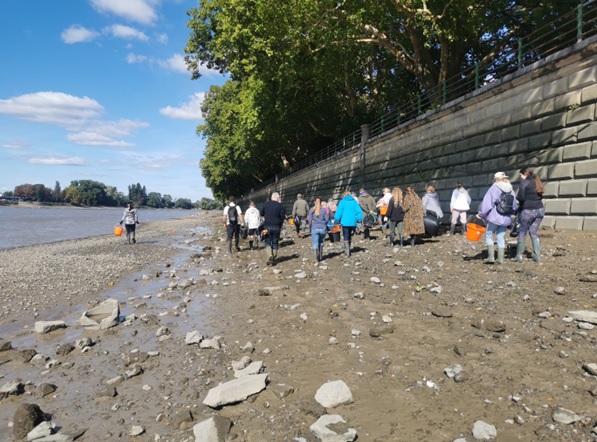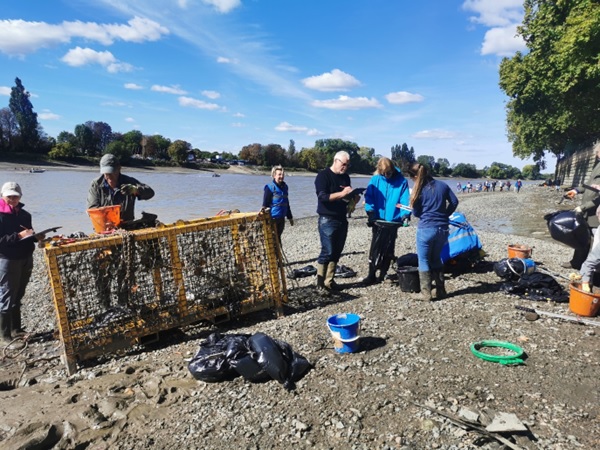Tackling litter down Fulham way
On the 17 September, 40 volunteers gathered at Bishops Park, Fulham, to take part in a litter survey. Our hardworking and determined group of volunteers, collected the litter they could find across the foreshore into buckets (Figure 1). After this, they classified the litter (Figure 2) using the ‘Preventing Plastic Pollution’ guidelines into multiple categories to determine the different categories of plants and non-plastics.


This data will be inputted and analysed into two separate projects:
- The Thames and Tributaries Plasticblitz: is an annual event that aims to engage as many community groups and Environment Agency teams as possible with taking part in a simultaneous litter pick and data collection activity around their local river between the 17th and the 25th September 2022.
- In-No-Plastic: is a three-year EU-funded project that works on the development and application of clean-up technologies in aquatic ecosystems. The approach taken is a combination of social and technical removal strategies targeting the industrial hotspots through cooling water systems (CWS), harbours, lagoons, shores and the shallow sea water.

In total our volunteers collected 5,368 items (Figure 3) from approx. 200m of foreshore, of which 5,261 items were plastic, 29 were made of rubber, 19 were fabrics, 8 items were processed/worked wood, 44 items of metal (non historic) and 7 items of glass/ceramics (whole items).
Of all the items found the highest category of litter recorded was wet wipes. Our volunteers managed to remove a record high number from this location of:
4,376 wet wipes
Some of the other highest categories recorded were in the plastics category:
- 65 plastic bags
- 90 cable ties
- 72 bottle lids
- 246 sweet wrappers
- 81 sheet wrapping/plastic packaging
- 58 sanitary towels/panty liners
A full list of the categories found and the data from across the River Thames collected by 30 teams can be found here: https://storymaps.arcgis.com/stories/9fd490cdc11c4fe182ed3c5d1ba926b7
